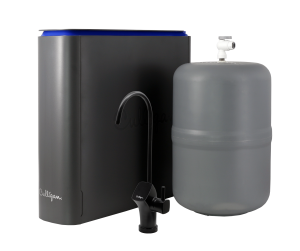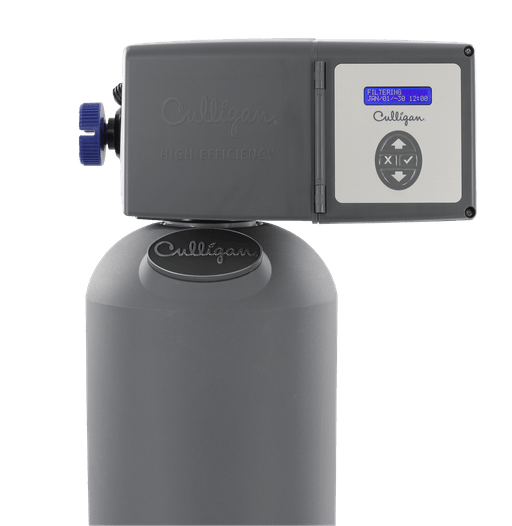Is Your Tap Water Safe to Drink? Investigating Lead Contamination of Ventura, California’s Water Supply
The presence of lead in the water supply of Ventura, California has become a significant concern for residents and authorities alike. This issue has raised numerous health and environmental concerns, as lead exposure can have severe consequences on human health, particularly for children and pregnant women. Let’s delve into the issues surrounding lead contamination in Ventura’s water, including its sources, health risks, and the urgent need for effective remediation measures.
Lead contamination in Ventura’s water can be attributed to various sources. Aging infrastructure, such as lead pipes and plumbing fixtures, is a primary contributor. As these pipes corrode over time, lead particles can leach into the water supply. Additionally, industrial activities, including manufacturing and mining, may have left behind residual lead in the soil and groundwater, which can find its way into the water system. Furthermore, the proximity of Ventura to major highways and urban areas increases the risk of lead contamination from vehicle emissions and runoff.
Exposure to lead-contaminated water poses significant health risks. Lead is a neurotoxin that can cause irreversible damage to the nervous system, leading to developmental delays, learning disabilities, and behavioral problems in children. Pregnant women are also at risk, as lead exposure can result in complications during pregnancy and harm the developing fetus. Long-term exposure to lead has been linked to cardiovascular issues, kidney damage, and an increased risk of cancer. The vulnerable populations of Ventura, including low-income communities and minority groups, are disproportionately affected by these health risks.
Given the severe health risks associated with lead exposure, immediate action is required to address the issue of lead contamination in Ventura’s water. This includes comprehensive testing of the water supply, identifying and replacing lead pipes and fixtures, and implementing effective water treatment methods to remove lead particles. Public awareness campaigns and education programs should be initiated to inform residents about the risks of lead exposure and provide guidance on how to minimize their exposure. Additionally, government agencies and local authorities must allocate sufficient resources to address this issue promptly and ensure the safety of Ventura’s water supply.
Ventura’s Fight Against Lead Contamination
Lead contamination is a concerning issue in Ventura, California, with instances of lead exposure primarily attributed to the presence of lead-based paint in older homes and buildings. However, lead can also be found in soil, water, and certain consumer products. Understanding how lead exposure occurs and the associated health risks is crucial for protecting oneself and loved ones from its harmful effects.
1. Is there a lead problem in Ventura, California?
Yes, there have been instances of lead contamination in Ventura, primarily due to the presence of lead-based paint in older homes and buildings. Additionally, lead can be found in soil, water, and certain consumer products.
2. How does lead exposure occur in Ventura?
Lead exposure in Ventura can occur through various routes. Children may ingest lead-contaminated dust or soil while playing outdoors, while adults can be exposed through occupational activities or by consuming contaminated food or water.
3. What are the health risks associated with lead exposure?
Lead exposure can have severe health effects, particularly on children. It can impair brain development, leading to learning disabilities, behavioral problems, and reduced IQ. In adults, lead exposure can cause high blood pressure, kidney damage, and reproductive issues.
4. How can I protect myself and my family from lead exposure?
To minimize lead exposure, it is crucial to ensure your home is free from lead-based paint and pipe hazards. Regularly clean surfaces, wash hands frequently, and maintain a healthy diet rich in calcium, iron, and vitamin C. It is also advisable to have your water tested for lead and use a certified water filter if necessary. Schedule your free water test today!
5. What is being done to address the lead issue in Ventura?
Local authorities in Ventura are actively working to address lead contamination. They provide resources and information to residents, conduct lead testing in homes and schools, and enforce regulations to prevent lead exposure. Additionally, community outreach programs aim to raise awareness about lead hazards and promote safe practices.
Efforts to address the lead problem in Ventura are underway, with local authorities taking proactive measures to combat lead contamination. These include providing resources and information to residents, conducting lead testing in homes and schools, and enforcing regulations to prevent lead exposure. Community outreach programs also play a vital role in raising awareness about lead hazards and promoting safe practices. By taking these steps and implementing preventive measures, individuals can protect themselves and their families from the dangers of lead exposure in Ventura.
Safeguarding Public Health in Ventura
One of the major health concerns associated with lead exposure is its impact on the nervous system. Lead can cause developmental delays and learning disabilities in children, leading to long-term cognitive impairments. Additionally, it can affect the cardiovascular system, leading to increased blood pressure and an increased risk of heart disease.
Lead exposure is particularly dangerous for pregnant women as it can cross the placenta and harm the developing fetus. It can result in premature birth, low birth weight, and developmental issues in newborns.
For children, the effects of consuming lead-contaminated water are especially high. Once consumed, lead remains in our bodies or ‘bioaccumulates’, as we can’t flush the contaminant from our system. Once there, lead can cause serious behavioral and cognitive problems for children, and over time it can lead to:
- Low IQ
- Hyperactivity
- Slowed, delayed, and stunted growth
- Problems hearing
- Anemia
- Seizures, coma, and possibly even death in severe situations
Furthermore, lead can accumulate in the body over time, causing chronic health problems. It can damage the kidneys, impair the reproductive system, and even lead to cancer.
To address these health concerns, it is crucial for the residents of Escondido to be aware of the potential lead contamination in their water supply. Regular testing of water sources, especially in older homes, is essential to identify and mitigate lead exposure risks.
Lead also crosses the placenta, so it’s especially important for pregnant women to avoid drinking water contaminated with lead. In addition to harming the mother, it can cause stunted fetal growth and premature birth.
For the average adult, lead exposure from water can cause heart and cardiovascular issues, reduce kidney function, and contribute to reproductive problems.
The degree and severity of these issues depends on how much lead you’ve been exposed to, and how much is stored in your body, though governing health authorities like the Centers for Disease Control (CDC) caution that no amount of lead is safe.

Lead In Your Ventura Drinking Water
In the U.S., 14-20% of lead exposure is attributed to drinking water. Municipalities have taken action over the past 30 years to ban lead solder, reduce corrosivity and remove lead from brass faucets and water meters, and these measures have significantly helped exposure issues.
Studies are show that lead at even its most minute levels can cause neurological, learning and IQ defects in children, and that these lower levels but widespread exposures can have large health effects.
Lead lends itself very easily to building pipes – like those used for transporting water. It’s malleable, relatively cheap to use and, as a result, its use in plumbing dates back to early Roman cities. Lead piping was also the standard in the United States until the 1920s and 30s, when concerns about lead poisoning became better understood.
How Lead Enters Drinking Water Systems
The most common way lead can enter a drinking water system is through corrosive aging pipes and plumbing infrastructure. Many homes, and sometimes entire communities, have plumbing infrastructure that has not been updated for decades, and sometimes more than a century.
These homes are at high risk for lead contamination, even if the water coming through it has been properly treated.
When pipes, fitting or solder have become corroded, water can become contaminated.
Proactive Prevention: The Best Deterrent
The best way to avoid a lead problem is to never have one. Despite the ongoing issues in many cities throughout America, many homeowners are simply not keen in getting a simple water test.
A test can determine whether your household has tap water, and whether this exposure can be avoided in the interim by flushing it for a specified amount of time. Knowing this can be the difference between your family becoming exposed to lead in tap water.
Synopsis of Flint Crisis

The Flint Crisis was a situation where the water was improperly treated – specifically, a severe act of negligence on the part of public officials failing to add corrosion inhibitors to the water. Given the heightened sense of awareness and knowledge of the issue, another such problem is likely not in the realm of possibility.
However, that doesn’t mean all water in your home is safe. Even treated water can leach lead into its supply if your pipes or fixtures are made of lead.
The final tally on the Flint Water Crisis, which included e.coli bacteria, THMs, lead, and a Legionnaire’s disease outbreak, resulted in 6,000 to 12,000 children exposed to lead and a slew of lawsuits, investigations, resignations and criminal indictments.
Solutions
Suggested Products

The Aquasential® Smart Reverse Osmosis Water Filter (RO)
- 7 stages of filtration and 12 filter options
- Certified for reduction of 58 contaminants
- 2-in-1 sediment and carbon filter screens out sediment and particles
- Can alert you and your dealer when service or filter replacements are needed

Aquasential™ Smart High Efficiency Whole House Water Filters
Reduce sediments in your water and contaminants that cause your water to appear, taste, and smell unpleasant. Your system can also lessen the taste and odor of chlorine, and prevent pipe damage and staining from low pH water. Additional customizations include:
- Culligan® Filtr-Cleer® Water Filters – Reduces Sediment Problems
- Culligan® Cullar® Water Filters – Reduces Taste and Odor Problems
- Culligan® Cullneu Water Filters – Reduces Acid Problems

Facebook